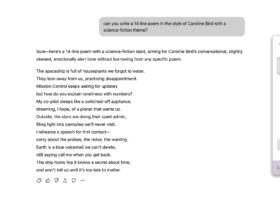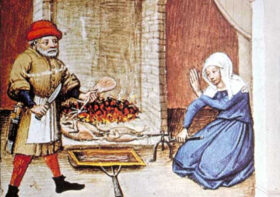Dear poets: publishing is a business

I’ve been emailing with a poet friend today who drew my attention to this piece in the Guardian, about Salt’s decision to stop publishing individual poetry collections and to concentrate on anthologies. I know it’s been a big topic of debate this week. But something about the way it’s been reported makes me see red.
As a fledgling poet as desperate as anyone to be published by a good quality press (if I’m being honest) I may be shooting myself in the proverbial foot here. But in my mind, publishing is a business, like any other – yes, I realise many small presses do it for love, which is perfectly possible if you have the means to do so, if you have a day job, don’t have staff or premises or bills to pay. Don’t get me wrong – I love the small presses and am eternally grateful that poetry attracts so many selfless individuals.
But if you are in the business of publishing, you need to make a profit, or at the very least, cover your costs. And to make a profit, you have to sell books. The time when poets could hand that over to their publisher to worry about has gone. A publisher does not exist to nurture new talent or to give young upcoming poets their big break. A publisher can only do that if people keep buying the books. Which, considering how many people no longer even read books, let alone buy them, and given how easy it is now to self-publish, is not surprisingly an uphill struggle.
Of course the Guardian gave the piece a particular editorial slant (big clue being in the funereal photo of Carol Ann Duffy). Perhaps I’m just not knowledgeable enough to realise the dreadful consequences of all this. But the marketer in me says that for poets to come across in this light – complaining about how poets are being denied an outlet, and what a tragedy it all is – does nothing whatsoever for the reputation of poetry, or poets, in the eyes of the general public. You know, all those people who do still buy books (except poetry books).
Surely given the economic climate we should all be thankful that Salt hasn’t folded, or even that it hasn’t abandoned poetry publishing altogether.
Rather than worrying about who’s going to publish our slim volumes we should be thinking about the real issues – how can we help regenerate interest in poetry? How do we reach out to all those people who love reading but can’t stomach poetry? How do we embrace changes in how the written or spoken word is consumed? How do we help publishers sell more books?
Come on guys, we’re in this together. If we can just be a bit less passive and a bit more proactive we might win more non-poet friends over. And then who knows what might happen.



Hurrah! Spot on Robin.
Thanks Jo 🙂
Well you wouldn’t be surprised to know that I kind of agree! Except I do wonder whether we are fixated with books, when in all other areas of publishing, the numbers of actual printed books is decreasing. Why would poetry be different?
Thanks Judi, yes that’s true, and I don’t think it should be a surprise that poetry is no different (which is why I don’t really understand the shock and dismay about Salt’s decision). The alternatives, whether it’s POD, ebooks or poetry in shop windows (something like that going on in a village near me) surely offer opportunities. From the reader/consumer’s point of view I wonder if the Kindle vs book experience is very different for poetry than for a novel or text book. My feeling is that part of the attraction of a poetry collection or pamphlet is in the presentation – some might say that’s my marketing background and that I’m being a tad superficial but I do believe it. If publishing in the future is all electronic and/or POD I can see presentation and quality of materials used becoming ever more valued.
Hi, great post, thought provoking. I am an avid novel reader and poetry reader. I now mainly buy novels for my kindle, something I didn’t think would happen as I thought it just wouldn’t be the same but I love it. It is not the same for me for poetry though, I’ve tried poetry on the kindle and it just doesn’t work for me, I love reading poetry in a book and flicking back and forth to re-read favourites which isn’t as doable with an ebook. I wonder if people are put off of trying poetry because they have a set view of what it’s going to be like, not realising the vast array of poets and poetry out there? There’s a lot I don’t like and equally hell of a lot I do but it took me a long time to realise it! Think I’m rambling now…